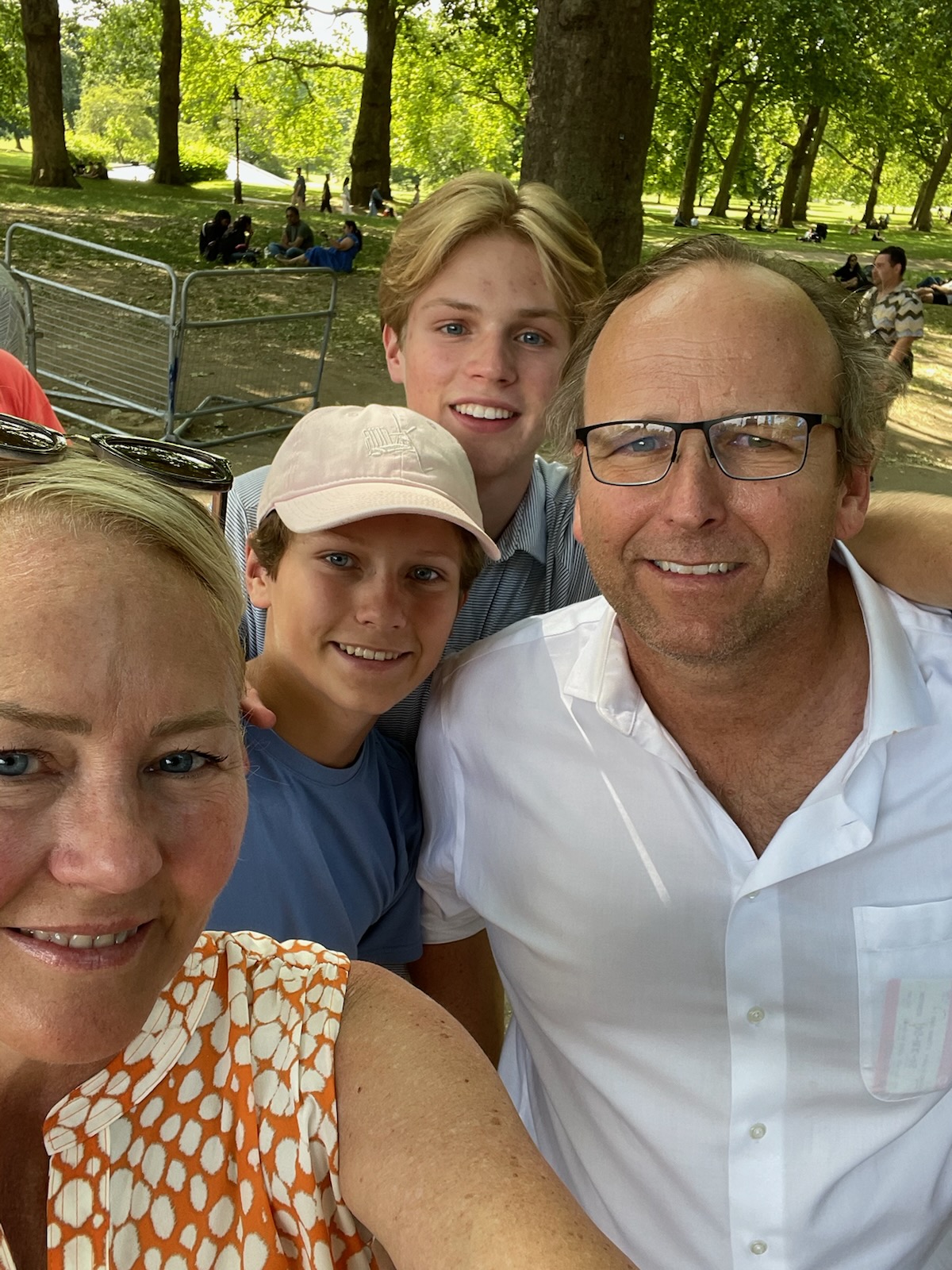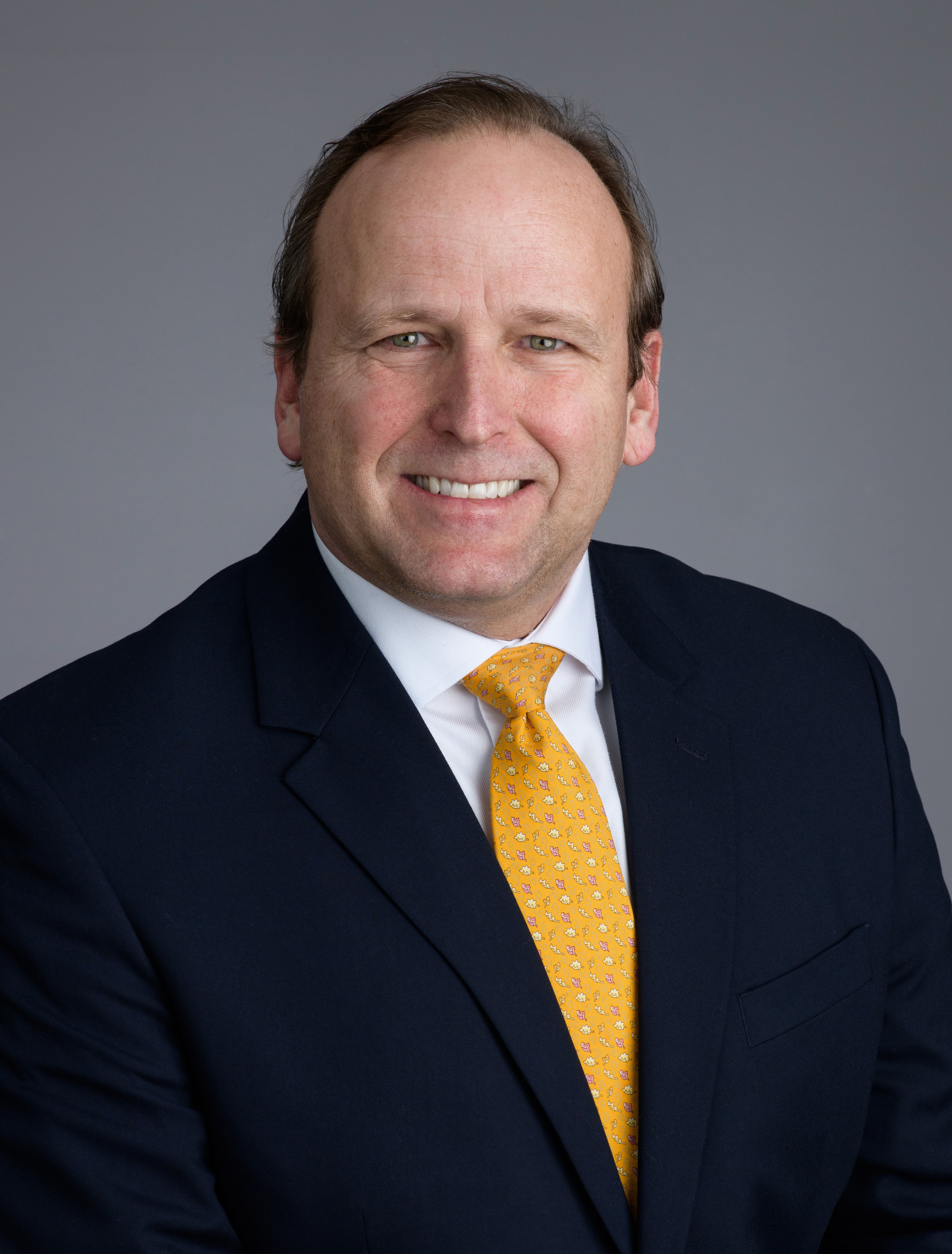Immigration, maritime lawyer connects with his clients in a real-world manner
By Brian Cox
Rhode Island attorney Christopher McNally’s life has uniquely prepared him for the two primary fields of law that his practice centers around – he almost seems to have been destined for the work.
As a naturalized U.S. citizen who carried a Green Card for nearly 20 years, he brings personal experience to his immigration law practice.
As a veteran mariner who has been sailing “since he was in diapers,” McNally offers clients an unparalleled knowledge base as part of his admiralty and maritime law practice.
Steve Jobs once said during a commencement speech that “You can't connect the dots looking forward; you can only connect them looking backwards.”
Looking back on his life, McNally can relate.
Born in Mexico City, McNally’s parents were expats who worked for a German engineering company and bounced around the world from project to project. His mother is Dutch, and his father was British. After a few years in Mexico City, the family moved to Venezuela, which was his parents’ third post to the country. The family next made their home in Miami for a few years before landing in Connecticut for a stint.
“I had a charmed and blessed childhood. We never lived anywhere longer than four years,” recalls McNally. “I learned how to be fluid and adaptable to a new scenario. I’m a pretty friendly fellow. I’m not afraid to say hello and chat. I think the breadth of my world experiences gives me a lot to talk about.”
When McNally’s father was posted back to Venezuela, McNally and his sister went off to boarding school. His sister attended one in Connecticut while McNally went to one in a suburb of Newport, R.I., a decision that would influence the course of his life for decades to come.
“I quickly fell in love with the place,” says McNally of Newport. “It’s special.”
He enjoyed the small, seaside city’s cosmopolitan feel and its diverse population, as well as its yacht-filled harbor.
At St. George’s School, McNally took part in a unique experiential marine science program in which students set sail on excursions that range from one to six weeks. The students join a small professional crew in the operation and upkeep of Geronimo, a 70-foot cutter.
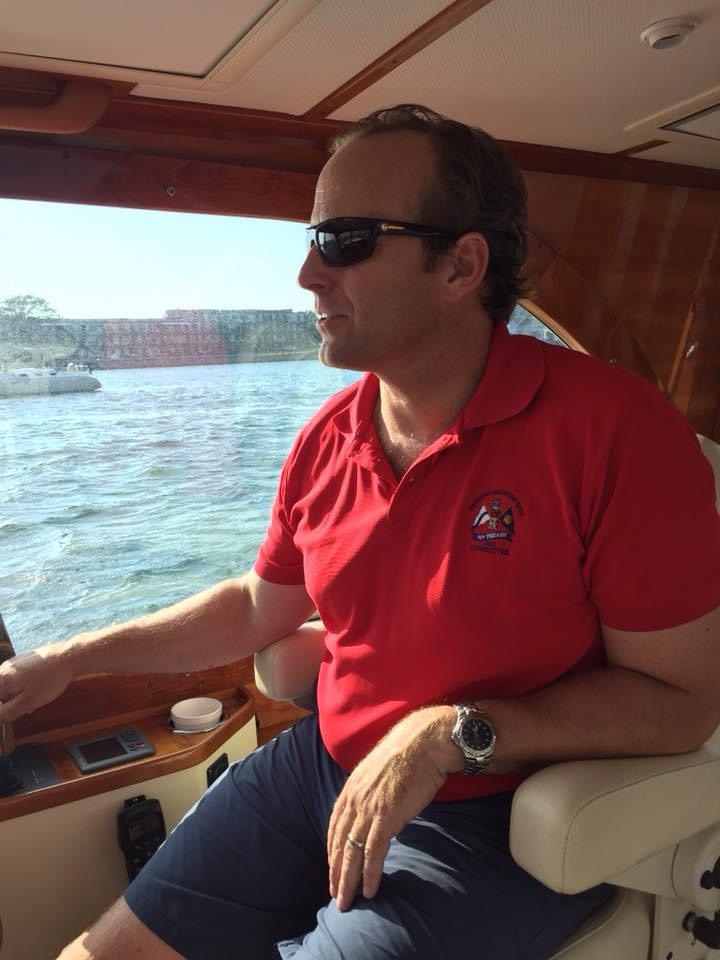
McNally is a Professional Mariner licensed by the U.S. Coast Guard and the Royal Yachting Association/Maritime and Coastguard Agency.
For McNally, who had been sailing since he was a toddler and who had spent as much time as possible fishing and had already forged a special relationship with the sea, the program fanned his passion for marine biology.
“Between sailing, fishing, and marine science, I was about as ‘salty’ as you could get,” he says.
After graduating from St. George’s, McNally headed to Eckerd College in St. Petersburg, Fla., to study marine biology. Throughout his time there, he owned a boat, but no car. It was not uncommon for him to arrive to class by boat, prop his fishing rod outside the classroom, and return to his boat to head back out fishing as soon as class was over.
While at Eckerd, McNally started accruing professional yachting licenses, mostly through the European system because he was still a British citizen. Once he graduated, he took work on several yachts and traveled extensively, making his way back down to Venezuela and then up to Alaska.
In 1998, ready to return to the East Coast, McNally reached out to Captain Stephen Connett, the man who created and headed up the Geronimo program at St. George’s and who had always said he had a place for McNally as a crew member on the boat, if he ever wanted it. McNally initially had to join as an “intern” because as a non-U.S. citizen he couldn’t work on a U.S. Coast Guard-inspected and documented vessel, which Geronimo is. But when Connett eventually asked McNally to be his mate, McNally decided it was time. He naturalized and became a U.S. citizen in 2000.
For the next seven years, McNally worked on Geronimo, traveling all over the Atlantic, Europe, the Caribbean, the Bahamas, and Canadian Maritimes. The program concentrated on nautical sciences with an emphasis on sea turtle biology and conservation, as well as shark research.
“We were doing the things I was sort of destined to do,” recalls McNally. “I was very happy.”
It was during an excursion to the Bahamas that McNally met his future wife, Kelly. When the couple decided to start a family, the idea of being gone for 12 weeks at a time lost its allure and McNally “came ashore.”
In 2008, the young family headed west to California where Kelly had grown up and had family. McNally remembers driving across country with the family’s belongs and listening to the news reports of the American economy crumbling. By the time McNally arrived in California, the project manager job he had lined up with a large yacht company had been downgraded to a position he found less interesting than he’d expected.
Just across the street from his office, however, was Orange Coast College, which had a sail training program for adults similar to Geronimo. McNally was hired by the college to write the program’s curriculum, which was designed to train young professional mariners.
What McNally couldn’t know looking forward was that his work on the curriculum would produce the inspiration to go to law school.
As he worked to get the program accredited and approved through the U.S. Coast Guard, McNally had to become familiar with the standards of training and certification as dictated by the International Maritime Organization (IMO). The regulations covered such subjects as manning requirements, safety at sea, navigation, seamanship, vessel systems maintenance, and basic firefighting.
“Wading through the IMO regulations to make sure the curriculum comported with those standards was an exercise in administrative law, even though I didn’t know it,” McNally says. “I was actually good at it.”
McNally stayed at Orange Coast College for three years to ensure the program was successfully launched and operating smoothly, but he knew he didn’t want an academic career. As he and his wife considered their future, McNally started considering returning to school for another degree – perhaps a Ph.D. or a master’s.
And then he thought, “Maybe I could do admiralty law.”
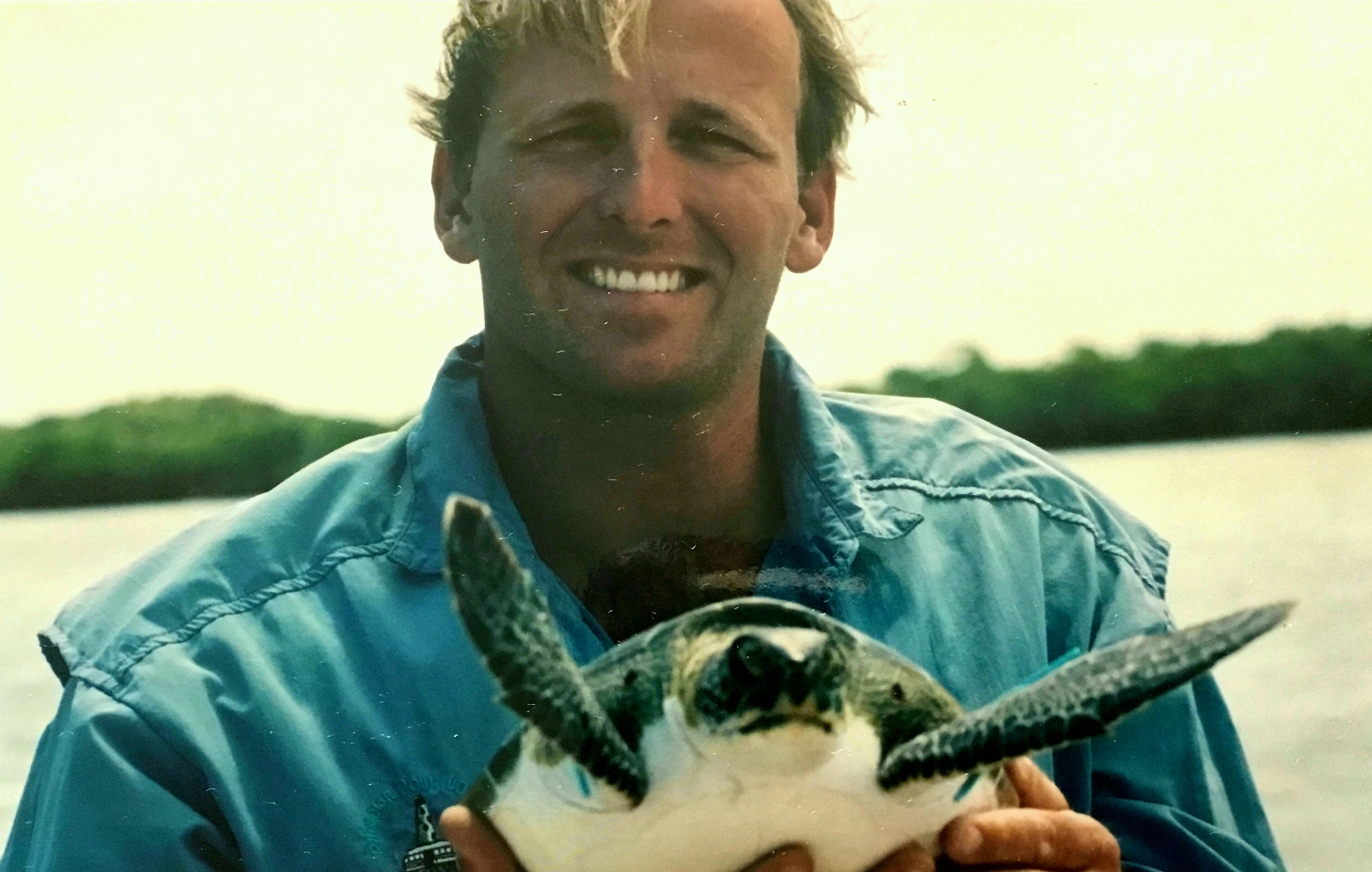
After earning a degree in marine biology, McNally spent several years as 1st Mate on Geronimo, a 70-foot training and oceanic research vessel owned and operated by St. George’s School that conducts research on sea turtles and sharks.
The family returned to Newport where McNally, at the age of 35, enrolled at Roger Williams Law School. His second son was born three weeks after law school began. He fit in a job as a marina manager, helping to build its operational program and developing an interest in ocean and coastal science and resources. It was a busy few years for the McNally household.
McNally knew he wanted to “stay salty” so he focused on admiralty and maritime law, drawing on his sailing background as a Professional Mariner licensed by the U.S. Coast Guard and the Royal Yachting Association/Maritime and Coastguard Agency (RYA/MCA). He still maintains and sails on both his U.S. Coast Guard 500 Ton Master and RYA 200 Ton Yacht master licenses, both with Oceans Endorsements.
Having studied, sailed, fished, explored, played, and worked on the ocean throughout his life, McNally’s respect and passion for the sea is at the core of his practice.
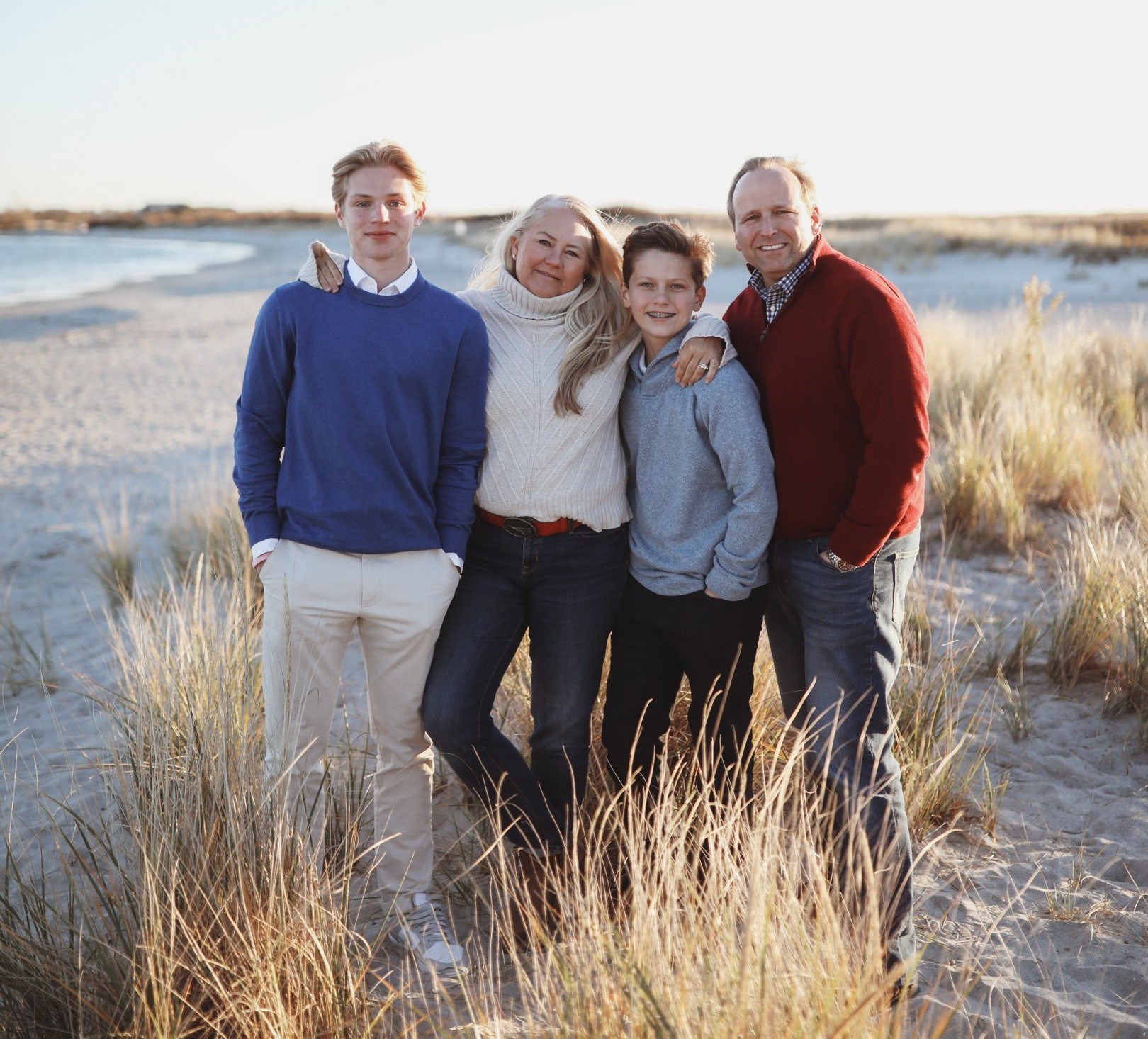
The sea and coastal region are an integral part of the McNally family’s lives.
“I’ve made a conscious effort to keep my practice as marine-centric as I can,” says McNally. “That’s because it’s a large piece of who I am.”
Fortuitously, McNally re-connected with Richard Sayer, the managing partner of Sayer Regan & Thayer, LLP, who was also an alum of St. George School and with whose daughter McNally had sailed on Geronimo when he was sailing as 1st Mate.
Sayer, who is also an avid sailor and once defended the America’s Cup, told McNally to call him when he finished law school, and so McNally did. He joined the firm in 2013.
McNally’s clients include boat builders, boat manufacturers, and boat yards, as well as individual owners and people looking to purchase a yacht. His years of experience on the water as a professional captain allow him to connect with clients in a very real-world manner.
“I can sometimes take my lawyer’s hat off and put my captain’s hat back on and talk with them about the practical side of things,” he says. “That has allowed me to develop some really fun and lasting relationships with clients, which is lovely.”
His practice also touches on more traditional maritime issues having to do with collisions, insurance disputes, and conflicts over salvage operations.
On his office wall, beside a framed photograph of an armada of sail boats, hangs a custom-made flag with a blue wave and a judge’s gavel. The blue wave is the logo of the Cruising Club of America (CCA), an organization of ocean sailors with a membership that is a who’s who of the yachting elite. The current CCA commodore presented McNally with the flag in recognition of McNally’s service as the group’s general counsel, or judge advocate general.
McNally “fell into” immigration law after he joined the firm. The attorney who had been running the practice was no longer with the firm, and McNally saw an opportunity. As with admiralty and maritime law, he was drawn to the complicated statutes and regulations that make up immigration law.
Very nearly fluent in Spanish from his years of living in Venezuela and Mexico City, McNally has largely concentrated on family-based immigration, helping clients bring immediate family members over to the U.S. to secure legal permanent residency. He also enjoys success in securing employment-based Immigrant and Non-Immigrant Visas for international clients.
He finds the work particularly rewarding, in part because immigration law is so personal and a decision by the U.S. Citizenship and Immigration Services adjudicator can change his client’s life.
“I enjoy sitting down with people and saying, ‘Okay, you’re here, you want to get there, let’s see if we can find a way through this corn maze to get where you need to go,’” he says. “The part that’s nice is helping some incredibly talented people achieve their goals and dreams that they simply couldn’t do elsewhere, and that feels good.”
He has clients from around the world, including Nepal, Spain, and Mexico. In a unique bit of synergy for his two practice areas, he often helps crew members of clients’ yachts with their immigration issues, much as he required before he became a naturalized U.S. citizen.
The convergence of his two practice areas reflects McNally’s lifelong experiences and passions.
“It is an odd, wonderful little nexus,” he says.
